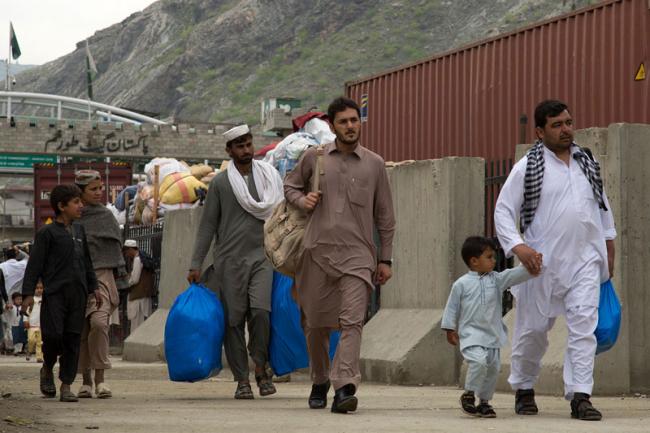
Afghanistan: UN assesses border management to cope with spike in returns from Pakistan
“With returns in 2017 on track to meet or even surpass the levels of last year, it is essential to have a comprehensive understanding of the current procedures at the border, and to look at how they can be improved,” said Laurence Hart, Afghanistan Chief of Mission of the International Organization for Migration (IOM), in a press release.
In 2016, 600,000 Afghans returned from Pakistan through the Torkham border crossing in Nangarhar province and the Spin Boldak border crossing in Kandahar province.
Over several visits to Torkham and Spin Boldak in April, the assessment team met with officials from the Afghan Ministry of Refugees and Repatriation, Border Police, customs officials, humanitarian actors and migrants.
Based on interviews and observations at the borders, IOM will produce an assessment report addressing key areas of administrative and operational capacity including infrastructure and available equipment; human resources and competencies; the regulatory framework guiding relevant government agencies; procedures and workflow; capacity gaps and issues.
“The report resulting from the assessment will include short-term recommendations for streamlining registration, document security and other border procedures, as well as technical assistance needs that could be addressed by IOM over the longer term,” said IOM border management expert Erik Slavenas.
As a first step toward improving efficiency at the border, the Ministry of Refugees and Repatriation, with the support of IOM, rolled out the Afghan Returnee Information System (ARIS) in late 2016.
ARIS, a digital registration process for both undocumented and refugee returnees, replaced a paper-based registration system. It allows for better data collection and data sharing.
Photo: IOM/Matthew Graydon
Source: www.justearthnews.com
Support Our Journalism
We cannot do without you.. your contribution supports unbiased journalism
IBNS is not driven by any ism- not wokeism, not racism, not skewed secularism, not hyper right-wing or left liberal ideals, nor by any hardline religious beliefs or hyper nationalism. We want to serve you good old objective news, as they are. We do not judge or preach. We let people decide for themselves. We only try to present factual and well-sourced news.







